Search
Search Results
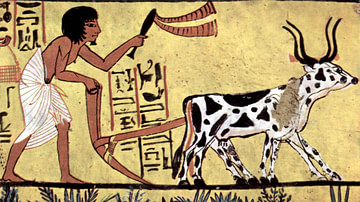
Article
Daily Life in Ancient Egypt
The popular view of life in ancient Egypt is often that it was a death-obsessed culture in which powerful pharaohs forced the people to labor at constructing pyramids and temples and, at an unspecified time, enslaved the Hebrews for this...

Article
Mesopotamian Education
Mesopotamian education was invented by the Sumerians following the creation of writing c. 3500 BCE. The earliest schools were attached to temples but later established in separate buildings in which the scribes of ancient Mesopotamia learned...
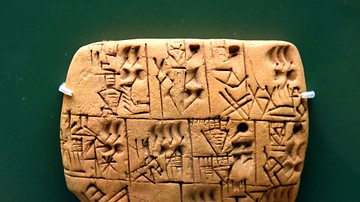
Article
Beer in the Ancient World
The intoxicant known in English as `beer' takes its name from the Latin `bibere' (by way of the German `bier') meaning `to drink' and the Spanish word for beer, cerveza' comes from the Latin word `cerevisia' for `of beer', giving some indication...
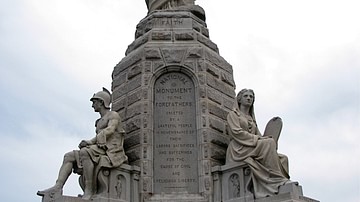
Article
Mayflower Passengers & Crew
The 102 Mayflower passengers were a diverse group made up of religious separatists (later known as pilgrims) and others referred to by the pilgrims as Strangers (people who did not share their faith). The ship also had a crew of approximately...
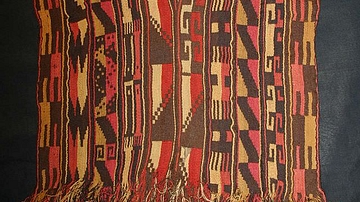
Image
Nazca Poncho
A Nazca poncho (200 BCE-500 CE) which illustrates the vibrant colours and bold linear patterns typical of Nazca textiles. (Lombards Museum)

Definition
Timbuktu - West Africa's Great Trading Centre
Timbuktu (Timbuctoo) is a city in Mali, West Africa which was an important trade centre of the Mali Empire which flourished between the 13th and 15th centuries. The city, founded c. 1100, gained wealth from access to and control of the trade...

Definition
Geoffrey Chaucer
Geoffrey Chaucer (l. c. 1343-1400 CE) was a medieval English poet, writer, and philosopher best known for his work The Canterbury Tales, a masterpiece of world literature. The Canterbury Tales is a work of poetry featuring a group of pilgrims...
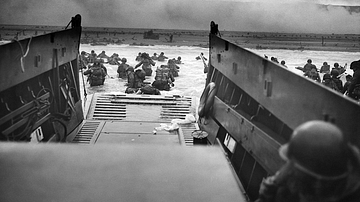
Definition
D-Day
D-Day was the first day of Operation Overlord, the Allied attack on German-occupied Western Europe, which began on the beaches of Normandy, France, on 6 June 1944. Primarily US, British, and Canadian troops, with naval and air support, attacked...

Definition
Script
Script is the written expression of a language. Cuneiform, the first script, was invented in Sumer, Mesopotamia c. 3500 BCE, hieroglyphics sometime prior to the Early Dynastic Period in Egypt (c. 3150-2613 BCE), and Sanskrit in India during...
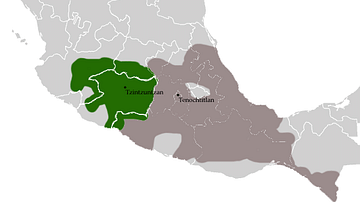
Definition
Tarascan Civilization
The Tarascan civilization (aka the Purépecha, after their language) dominated western Mexico and built an empire that would bring it into direct conflict with that other great Mesoamerican civilization of the Post-classic period, the Aztecs...